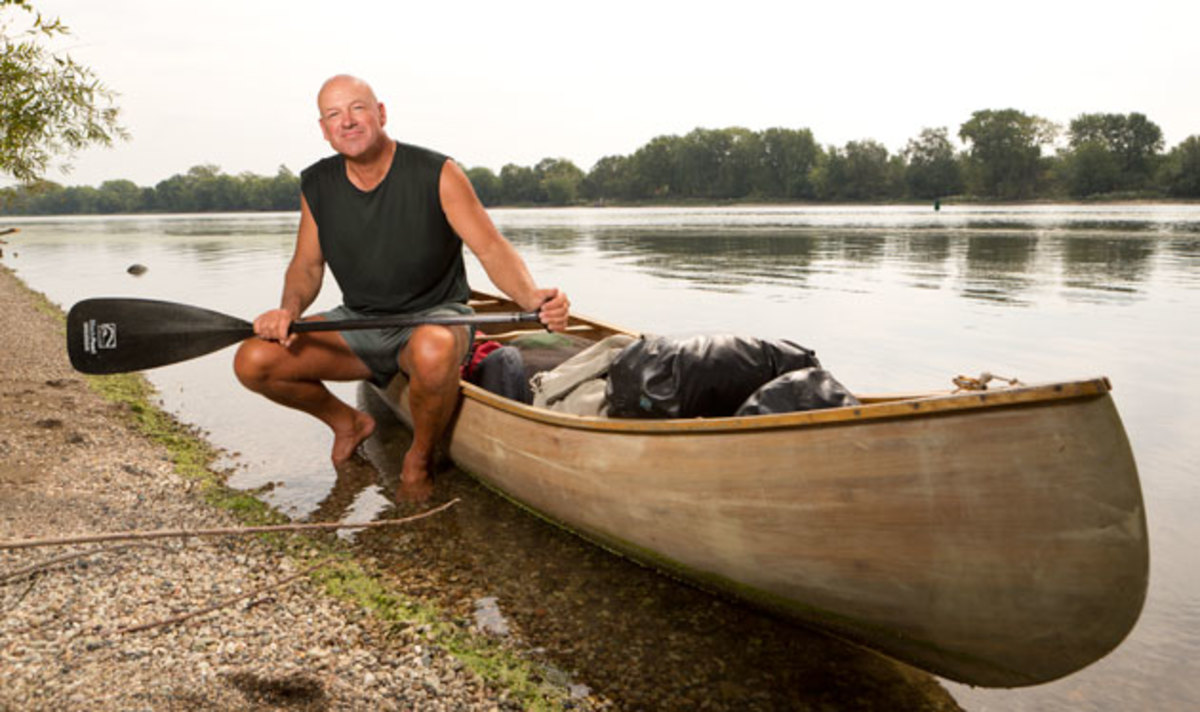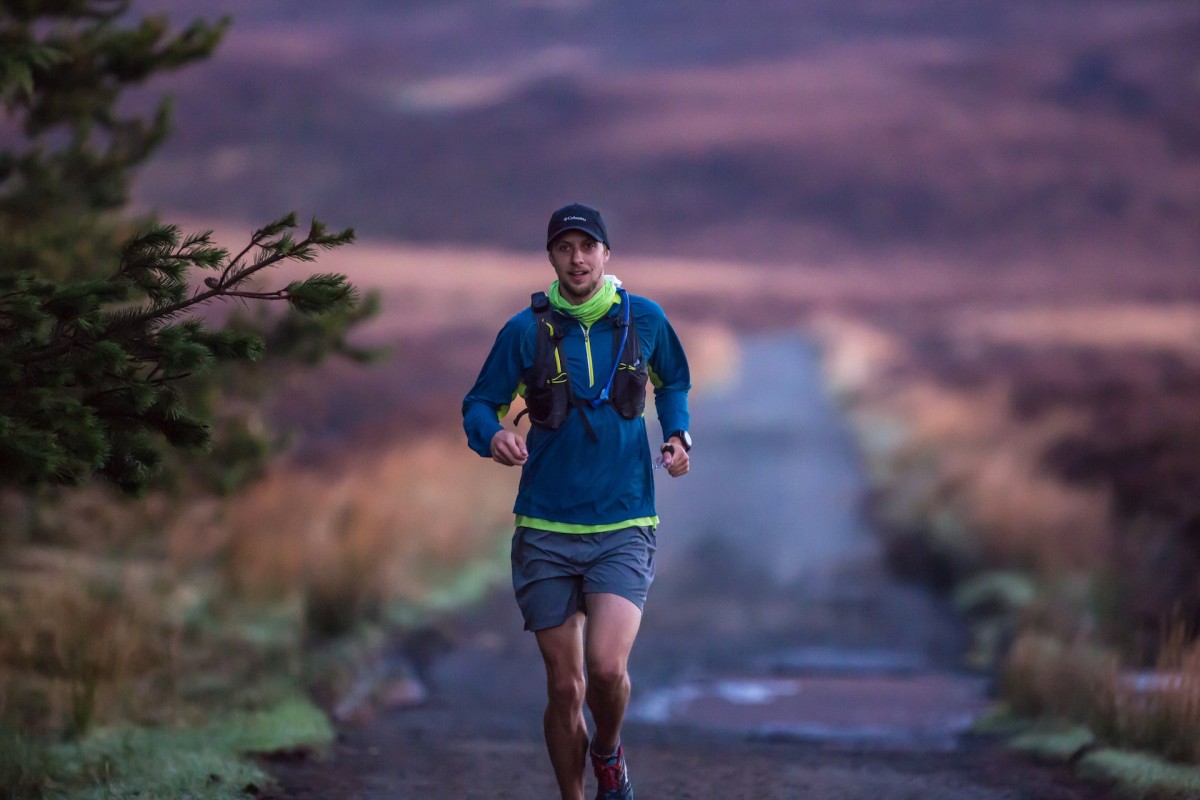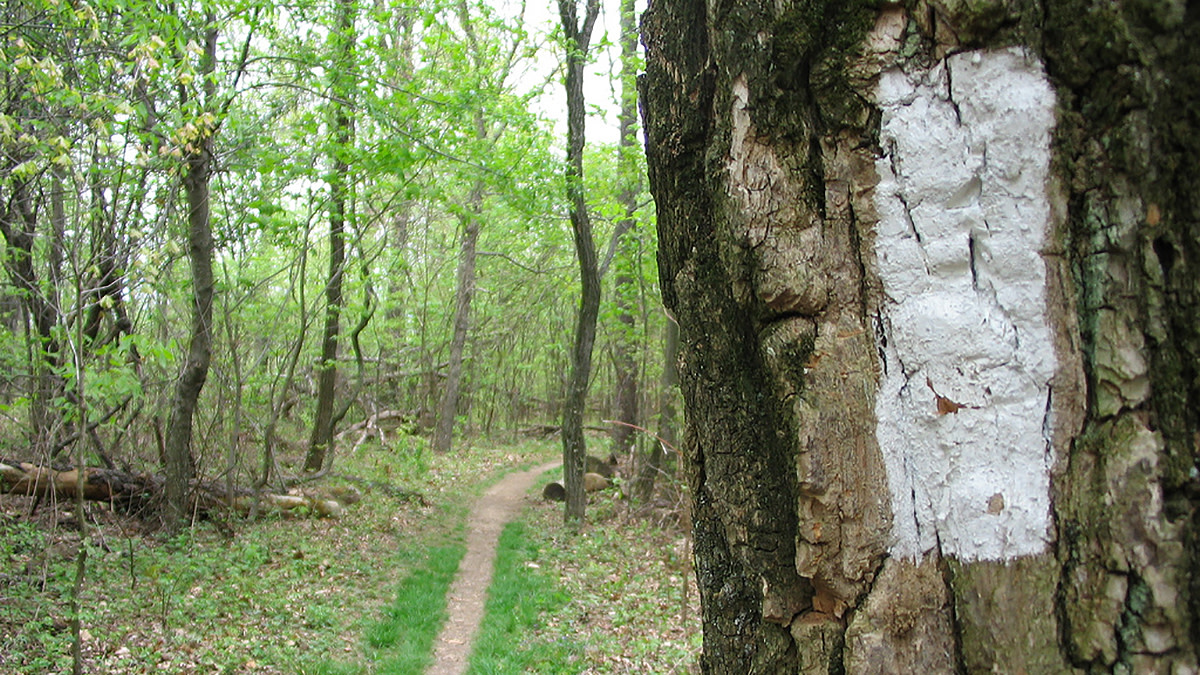Sixty-year-old Bill Nedderman is the adventure sports legend you’ve never heard of. And he would be fine keeping it that way, going about his business of making long-distance, self-propelled journeys the central pillar of his life. The Iowan has racked up an incredible 150,000 miles of travel under his own power since 1980.
Nedderman was working in telecommunications when he took a vacation to make a weeklong bicycle trip across Iowa. “I fell in love with the idea of being away for months,” he says. “Bicycling brings with it a mechanical advantage that empowers you to dream big.”
Pedaling through the cornbelt, Nedderman had a revelation: “There is a lot to see out there—what’s around the next bend and over the next ridge. I couldn’t get enough of it.”
Nedderman admits his first trips were approached as personal challenges, “to see if I could do it,” he says. Then his outlook changed as he recognized what journeying under his own power did to his sense of awareness. “I guess now it’s more of a feeling of rhythm with the motions of paddling, pedaling or walking,” he notes. “It’s very meditative, like perpetual energy—as though I get back as much energy as I expend doing it. I like to think I could go forever.”
And so he has, building an impressive expedition resume in the process—though the understated Midwesterner tends to avoid jargon like “expedition.” The man is a journeyer, with a bike, boots, or paddle-powered boat his ultimate vehicles of freedom. Last fall, Nedderman completed the 2,653-mile Pacific Crest Trail, making him the first person to complete America’s longest hiking trails—the PCT, Continental Divide Trail and Appalachian Trail—an astounding four times. What’s more, Nedderman’s paddling odometer tops 44,000 miles; he’s made the 6,000-mile Great Loop around the eastern U.S., which can be conveniently accessed from his hometown, in a homemade wood-strip canoe.

How does he do it? By living simply and prioritizing his vision of personal freedom over everything else. “I used to work long hours,” he says. “I lived simply and always within my means, and I think I always knew I could make it work financially. It’s very liberating. We all need some money but it can be surprisingly affordable. You need ambition and drive to make it happen.”
Nedderman retreats to a 200-square-foot cabin for breaks between his long-distance trips. His general outlook is, “Home is where I sleep.” The cabin provides “a place to think and to feel grounded for a time,” he says. “But I wouldn’t say I miss it when I’m not there. When I lock it up to go on a trip, I turn back as I walk away and say, ‘You’re on your own.’ And then so am I. The cabin takes care of itself and it’s freeing to know I don’t worry about it. In the back of my mind I know I can always come back and that’s freeing as well.”
Nedderman’s definition of freedom involves time, health and energy. “All this travel and what I do is about freedom to be me and I’ll fight hard to keep it that way.” Of course, a big part of his lifestyle involves access to public lands. “I think everyone wants to enjoy these places—to breathe and feel fresh air and drink clean fresh water,” he says. “That’s priceless.
“But I don’t know the answers to keep it that way,” Nedderman adds. “It’s a political thing, I guess, and you would think it shouldn’t be. I don’t like all this bickering going on these days so I just shut it off.”
Meanwhile, he’s already made his plans for 2020 to visit three new places: Hiking Arizona’s Sky Island Traverse; cycling the Great Divide mountain bike route to Canada; and hiking the Pacific Northwest Trail. “There is no time like the present,” he advises. “Taking that first step or paddle stroke can be the hardest—but do take it!”
from Men's Journal https://ift.tt/3gyvglS





0 comments